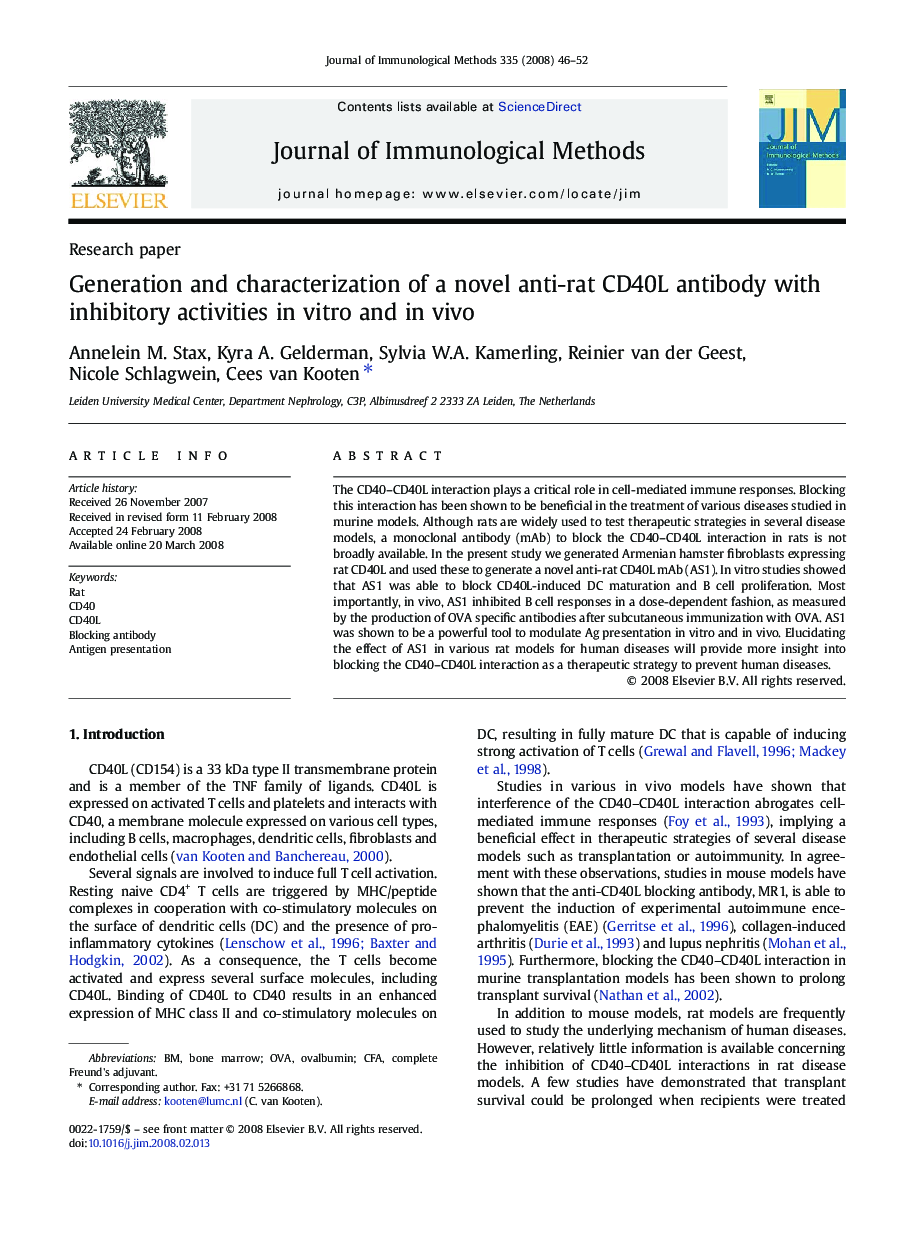| Article ID | Journal | Published Year | Pages | File Type |
|---|---|---|---|---|
| 2088985 | Journal of Immunological Methods | 2008 | 7 Pages |
The CD40–CD40L interaction plays a critical role in cell-mediated immune responses. Blocking this interaction has been shown to be beneficial in the treatment of various diseases studied in murine models. Although rats are widely used to test therapeutic strategies in several disease models, a monoclonal antibody (mAb) to block the CD40–CD40L interaction in rats is not broadly available. In the present study we generated Armenian hamster fibroblasts expressing rat CD40L and used these to generate a novel anti-rat CD40L mAb (AS1). In vitro studies showed that AS1 was able to block CD40L-induced DC maturation and B cell proliferation. Most importantly, in vivo, AS1 inhibited B cell responses in a dose-dependent fashion, as measured by the production of OVA specific antibodies after subcutaneous immunization with OVA. AS1 was shown to be a powerful tool to modulate Ag presentation in vitro and in vivo. Elucidating the effect of AS1 in various rat models for human diseases will provide more insight into blocking the CD40–CD40L interaction as a therapeutic strategy to prevent human diseases.
